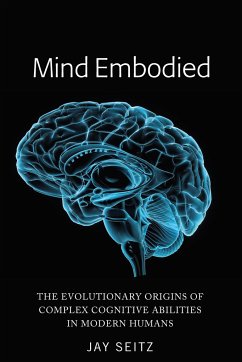How does the brain function in communion with the body to create complex thought and emotion? Mind Embodied: The Evolutionary Origins of Complex Cognitive Abilities in Modern Humans begins with an investigation of the embodied basis of complex cognitive abilities and sets out a theory of their evolutionary and developmental origins, their autochthonous beginnings in other species, their appearance at the margins of humankind, and their culmination in a panoply of highly elaborated abilities and skills in present-day hominins. This book explores and examines music, aesthetic movement, the visual arts, creative abilities, language and communication, sociality, narrative and conceptual thought, the beginnings of artificial intelligence augmentation, and even the finesse and tastes of an oenophile.
"This book offers a new perspective on the old question of the mind-body relationship and its evolutionary underpinnings, arguing that the two systems are more closely aligned than was previously believed. To make the case for the body as a basis for higher order cognition, Jay Seitz takes the reader on a fascinating journey into all aspects of human development, including intellectual, aesthetic, and physical development, as well as talking about specific clinical conditions such as autism, Tourette syndrome and obsessive-compulsive disorders, and drawing examples from the behavior of non-humans. Seitz's narration is vivid, engaging, and illuminating, making this text equally suitable for scholars, clinicians, educational practitioners, and a general audience that might take an interest in how human behavior can be seen as a manifestation of the embodied mind." -Matthijs Koopmans, Professor of Educational Leadership at Mercy College








